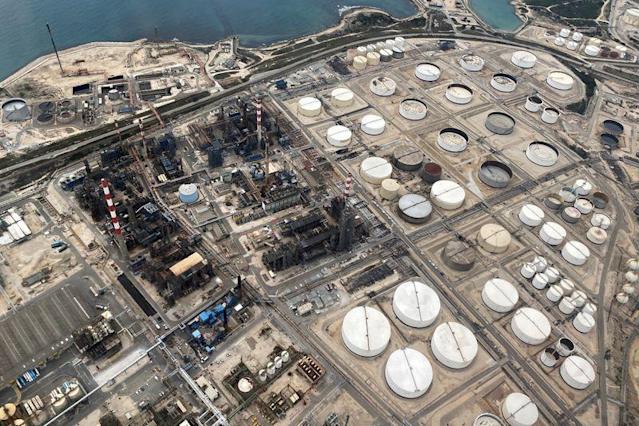New York (Reuters) – Oil prices subsided in volatile trading on Tuesday, pressed by the US dollar.
At the beginning of this session, the price rose more than $ 2 per barrel after the Japanese industry minister said the International Energy Agency (IEA) was still discussing the release of coordinated oil reserves thought by many traders was an agreement. After that, the price traded on both sides has not changed for most of the day.
Requests for concerns were installed after the authority at China’s top oil importer extended the lock in Shanghai to cover all 26 million financial centers.
“The secondary dollar weakness gradually gives strength to strength in providing an additional impulse behind the swing of oil prices now back to its negative side,” Jim Ritterbusch, President Ritterbusch and Associates in Galena, Illinois.
Brent Futures fell 89 cents, or 0.8%, to complete $ 106.64 per barrel. Crude oil A.S. West Texas Intermediate (WTI) fell $ 1.32, or 1.3% to complete $ 101.96.
Oil prices can obtain support after completion if analyst estimates are correct and A.S. Raw inventory decreased by around 2.1 million barrels last week. [Eia / s] [fire / s]
The American Petroleum Institute (API), an industrial group, will issue an inventory report at 4:30 a.m. EDT (2030 GMT). On Wednesday, the US Energy Information Administration (EIA) will issue an official report at 10:30 a.m. EDT.
The dollar strengthened the fourth consecutive day to the highest since May 2020 to a basket of other currencies. A stronger dollar makes oil more expensive for other currency holders.
The United States and the European Union (EU) propose new sanctions sweeping against Russia for civilian killings in Ukraine, including a ban on coal imports.
German Foreign Minister Annalena Baerbock said the prohibition of coal would be followed by oil and then gas.
Moscow, who called the action in Ukraine “special operations,” said the allegations of war crimes in the city of Bucha Ukraine were “terrible forgery” which was aimed at lowering the Russian army.
To appease oil prices, allied countries A.S. Approved last week for coordinated oil release from strategic reserves for the second time in a month.
The Executive Director of Mizuho Energi futures Robert Yawger said the US plan to release 180 million barrels of oil from strategic oil reserves had narrowed the spread between current and later.
Yawger records Futures WTI only trades in “Super Backwardation” with every month at least $ 1 per barrel below the previous month until October 2022. A month ago, he said the curve in November 2023.
Providing concerns in several organizations of their petroleum exporting countries and allies (OPEC +), including Iraq and Kazakhstan, also supported prices.
OPEC + Members of the production of Russian oil and gas condensate in early April decreased by 4% from March.

